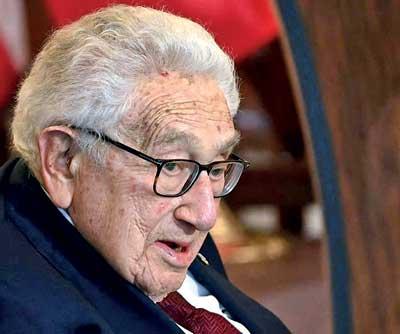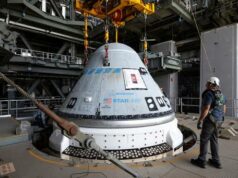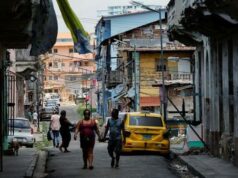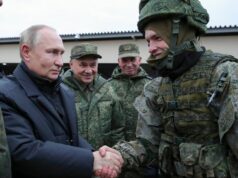Kissinger, power politics and Israel’s war on Gaza

By Amen Izzadeen
In Israel’s Gaza carnage and its militarism, Henry Kissinger, who passed away yesterday at the age of 100, comes alive in one form or another.
Kissinger: An opportunity to settle problems or to gain diplomatic points knocks only once. Once such opportunities are missed, they are lost forever
Hamas’ “open act of aggression” must be met with “some penalty,” said Kissinger in a recent interview with the Brussels-based Politico, backing Israel’s war in response to Hamas fighters’ October 7 attacks.
Kissinger, however, warned of the danger of the war escalating into a region-wide conflict.
His for-and-against-war reply indicated that he remained what he was—a hawk and a pragmatist to the core. He advocated the use of force and promoted peace and negotiations, only if war failed to achieve its objective.
Israeli leaders were simply following Kissinger when they opted for war in dealing with the Palestinian resistance forces. What Israel was doing in Gaza before the temporary pause in its civilian-killing attacks was what Kissinger and the presidents under whom he served have been accused of doing in Vietnam, Cambodia, and Laos in the 1970s: relentless air attacks, carpet bombing, and thousands of civilian deaths.
He was a colossus on the world stage. In the late 1960s and throughout the 1970s, not a single day passed without people finding mention of Kissinger in newspapers and radio news bulletins. This was so not only in the United States but all over the world, including Sri Lanka. In many parts of the world, he was a household name.
In international relations faculties, one of the deeply studied figures is Kissinger. Like E.H. Carr and Hans J Morgenthau before him, he was an advocate of power-centric realpolitik. Till his death, he remained a diplomatic and foreign policy buff. He was held in awe and contempt.
One of the most controversial figures to emerge from the Cold War, German-born Kissinger, then a teen, fled Nazi Germany with his family in 1938 and went on to become the architect of American foreign policy during the Cold War. In his adopted nation, he played multiple roles and excelled in them too. He was a soldier, Harvard scholar, diplomat, and statesman whose diplomatic elan changed the course of world politics.
Be it pushing for moves to end the Vietnam War, causing a rift between the Cold War-era communist giants, the Soviet Union and China, setting up diplomatic contacts with China through Ping-Pong diplomacy, working out strategic arms reduction treaties with the Soviets, overthrowing the democratically elected Chilean President Salvador Allende and replacing him with dictator Augusto Pinochet, or making peace between Egypt and Israel, his diplomacy has been a study in realpolitik and will continue to be so.
At times appearing to be idealist and at times aggressively promoting political realism, Kissinger was a chameleon-like pragmatist shifting from war to peace and peace to war in his attempts to advance the United States’ geopolitical interests, while he was the national security advisor, secretary of state, or even foreign policy consultant in retirement.
His idealism was seen in his view that the world was heading for catastrophe, and the task of diplomacy was to postpone it. In the same breath, he would express a realist’s view that war was almost inevitable, and the diplomat’s major task was to limit it to tolerable proportions.
Taking a leaf from 16th-century political philosopher Niccolò Machiavelli, he would advise that leaders must be pragmatic rather than idealistic; they must be secretive and flexible. Above all, they must understand that “force” is the elemental ingredient of history.
Advocating war, he once said, “Much as we deplore it, most major historical changes have been brought about to a greater or lesser degree by the threat or the use of force.”
Applying this principle to the Middle East crisis of October 1973, Kissinger, after rushing urgent military aid to Israel to avert a humiliating defeat, interpreted the situation in terms of his might-is-right policy: “I hope we get a military solution quickly, and then we can work on a diplomatic solution. You cannot have a diplomatic solution until you get a military solution.”
Kissinger believed that policymakers should be imaginative and mentally agile and should possess a keen sense of timing and the “killer instinct.” They should know, in other words, the exact location of their opponents’ political jugular vein. An opportunity to settle problems or to gain diplomatic points knocks only once. Once such opportunities are missed, they are lost forever.
He argued that the job of the US policymaker was to help the international system attain a stable state of balance. To do this, leaders must be cunning and patient. They must be able to manipulate events and people. Yes, the US presidents, under whom Kissinger served, manipulated events and people during the Vietnam War.
According to Kissinger, leaders must play the power game in total secrecy, unconstrained by parliaments that lack the temperament for diplomacy.
They must not be afraid to use force when necessary to maintain order. They must avoid ironclad rules of conduct; an occasional show of “irrationality” may be instructive. They must not shy away from duplicity or unscrupulousness, all of which are acceptable tools for statecraft. These must never burn their bridges behind them. And, if possible, they must always be charming.
That was Henry Kissinger, the diplomat, Nobel Peace Prize winner, and alleged war criminal.
If it was the Vietnam peace deal that won him the Nobel Peace Prize in 1973, on account of the same conflict, the war criminal label was slapped on him. During much of the Vietnam War, he was National Security Advisor and Secretary of State under Presidents Richard Nixon and Gerald Ford. His hawkism resulted in the deaths of hundreds of thousands of Vietnamese civilians. He promoted the bombing of Laos and Cambodia. He stood accused of destabilising Cambodia and being responsible for the rise of the Khmer Rouge, who massacred more than two million Cambodian people during their reign of terror from 1975 to 1979.
He cared less about human rights abuses as long as they served the US interest.
Then again, he was the key architect of the Middle East peace process. Capitalising on Egypt’s willingness to make peace with Israel, he brought about the 1979 Camp David Accord. This was the mother of all the Abrahamic accords that the Arab countries have signed in recent years and are about to sign under US coercion and at the expense of slow-pedalling the Palestinian cause.
For him, power is the ultimate tool that decides international relations. The world balance of power should be always in favour of the US, he insisted.
He once said, “Power is the ultimate aphrodisiac,” when asked about his dating antics with model Candice Bergen, actress Jill St. John, and others.
Kissinger, born on May 27, 1923, is no more, but his power-centric and war-first legacy continues in the US and Israel.
Daily Mirror



